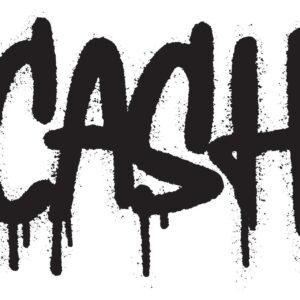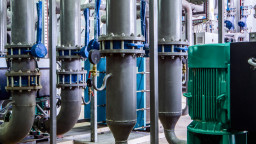The world of beverages is undergoing a revolution. What was once a market dominated by alcoholic drinks is now rapidly evolving to include an exciting and diverse range of non-alcoholic alternatives. This shift has given birth to a new retail trend: the non-alcoholic shop. These specialized stores cater to a growing community of consumers who are sober-curious, health-conscious, religiously abstinent, or simply looking for sophisticated drinks without the side effects of alcohol. In this article, we explore what non-alcoholic shops are, what they offer, why they’re thriving, and how they are reshaping our social culture.
What Is a Non-Alcoholic Shop?
A non-alcoholic shop is a retail store—either physical, online, or both—dedicated to selling drinks and products that contain little to no alcohol (typically under 0.5% ABV). These shops are thoughtfully curated to mimic the experience of a traditional bottle shop or wine store, minus the alcohol content. From non-alcoholic wines, beers, and spirits to adaptogenic drinks, mocktail mixers, and functional beverages, these shops offer a wide variety of choices that are both complex and satisfying.
Some shops also extend their product range to include non-alcoholic aperitifs, kombucha, CBD-infused drinks, and health tonics, aiming to cater to people who want to socialise or relax without compromising their lifestyle choices. Whether you’re planning a party, hosting a dry wedding, or simply enjoying a quiet night at home, non-alcoholic shops provide the perfect answer.
Why the Demand for Non-Alcoholic Shops Is Growing
Several social and cultural factors have converged to fuel the rise of the non-alcoholic shop. One major trend is the increasing emphasis on health and wellness. People today are more conscious of what they consume, and many are reducing or eliminating alcohol from their lives to improve sleep, mood, focus, and physical health.
The popularity of global movements like Dry January, Sober October, and the sober-curious lifestyle has further encouraged consumers to explore alcohol-free living. This shift is not about deprivation but empowerment—making mindful choices that align with personal goals and well-being.
Younger generations, particularly Millennials and Gen Z, are leading the charge. According to industry research, alcohol consumption among people in their 20s and 30s is decreasing significantly. These consumers seek premium, well-crafted alternatives that offer the complexity and ritual of alcoholic beverages—without the negative consequences.
What You Can Expect to Find in a Non-Alcoholic Shop
Non-alcoholic shops are far from boring. In fact, they are often bursting with innovative products, stylish branding, and carefully curated selections that rival even the finest wine and spirit retailers. Here’s what you can typically find in a well-stocked non-alcoholic shop:
Non-Alcoholic Wines
From crisp Chardonnays and fruity Rosés to bold Cabernets and sparkling Proseccos, these wines are dealcoholized using techniques like vacuum distillation or reverse osmosis. Some top brands include Thomson & Scott Noughty, Leitz Eins Zwei Zero, and Surely.
Non-Alcoholic Spirits
Designed to replace gin, whiskey, rum, or aperitifs, these alcohol-free spirits are infused with botanicals and flavors to mimic traditional liquors. Brands like Seedlip, Lyre’s, and Monday are popular in the space.
Non-Alcoholic Beers
Craft breweries are now producing non-alcoholic beers with the same care and complexity as their alcoholic counterparts. Options range from IPAs and lagers to stouts and wheat beers. Look out for brands like Athletic Brewing, Bravus, and BrewDog AF.
Mixers and Mocktail Kits
Non-alcoholic shops often carry mixers, syrups, and garnishes for those who love to craft mocktails at home. You might find bitter sodas, elderflower tonics, and ready-to-drink mocktail cans that make entertaining easier and more inclusive.
Functional and Wellness Drinks
These include adaptogenic drinks with ingredients like ashwagandha, L-theanine, or reishi mushrooms, which aim to reduce stress or enhance mental clarity. Also popular are CBD-infused drinks and electrolyte tonics, all alcohol-free but mood-boosting.
The Experience of Shopping at a Non-Alcoholic Store
Non-alcoholic shops are designed with the same attention to detail, branding, and customer experience as traditional liquor stores. Whether online or in-person, these shops provide a premium retail experience. Many have tasting rooms or offer virtual tastings, allowing customers to explore flavors and pairings just like they would with wine or spirits.
The staff are often highly knowledgeable, ready to guide newcomers and seasoned sober shoppers alike. Whether you’re looking for a dry, tannic red wine to go with your steak or a citrusy gin alternative for your Negroni, they’ll know exactly what to recommend.
Online shops often feature subscription boxes, gift sets, and personalized recommendations, along with helpful content such as blog posts, recipes, and user reviews to help buyers make informed decisions.
Cultural and Social Shifts Supporting the Market
In the past, choosing not to drink was often seen as unusual or anti-social. Today, it’s increasingly recognized as a smart and respectable decision. From celebrities like Blake Lively and Chrissy Teigen launching their own non-alcoholic lines to upscale restaurants offering curated alcohol-free menus, abstaining from alcohol is becoming mainstream.
This change is reflected in social dynamics. Sober socializing is gaining traction, and people are seeking out bars, events, and venues that cater to non-drinkers. Non-alcoholic shops play a key role in this movement by providing the beverages that fuel these experiences. They are not just retail spaces—they are cultural ambassadors of a new way of living and enjoying life.
Challenges Facing Non-Alcoholic Shops
Despite their growing popularity, non-alcoholic shops face a few hurdles. Education is one. Many consumers still assume non-alcoholic beverages lack flavor, sophistication, or depth. Overcoming these assumptions takes time and consistent marketing.
Regulatory issues also exist in some regions where labeling laws for low-ABV products are inconsistent. Additionally, pricing can be a challenge. High-quality non-alcoholic products often cost as much as, or even more than, their alcoholic counterparts—something that can be off-putting to first-time buyers.
However, with increasing demand, competition and innovation are helping to lower costs and increase accessibility.
The Future of Non-Alcoholic Retail
The non-alcoholic category is expected to explode in growth over the next decade. Major beverage companies are investing heavily in alcohol-free lines, and boutique brands continue to emerge with exciting new offerings. As consumer demand increases, expect to see more physical stores, expanded online platforms, and mainstream supermarket shelf space dedicated to non-alcoholic choices.
Technological innovation will also play a role, with AI-driven recommendations, AR tasting experiences, and personalized beverage subscriptions likely to become more common. Meanwhile, community-oriented initiatives such as pop-up sober bars, non-alcoholic festivals, and mindful drinking workshops will help normalize and celebrate the alcohol-free lifestyle.
Conclusion
Non-alcoholic shops are more than a retail trend—they’re a reflection of a deeper cultural shift toward mindful living, inclusion, and wellness. By offering a wide selection of premium, adult-oriented beverages without alcohol, they empower people to celebrate, unwind, and socialize on their own terms.
Whether you’re exploring sobriety, cutting back, or simply curious, the modern non-alcoholic shop offers a welcoming, exciting, and delicious gateway into a world where flavor, fun, and wellness go hand in hand.









